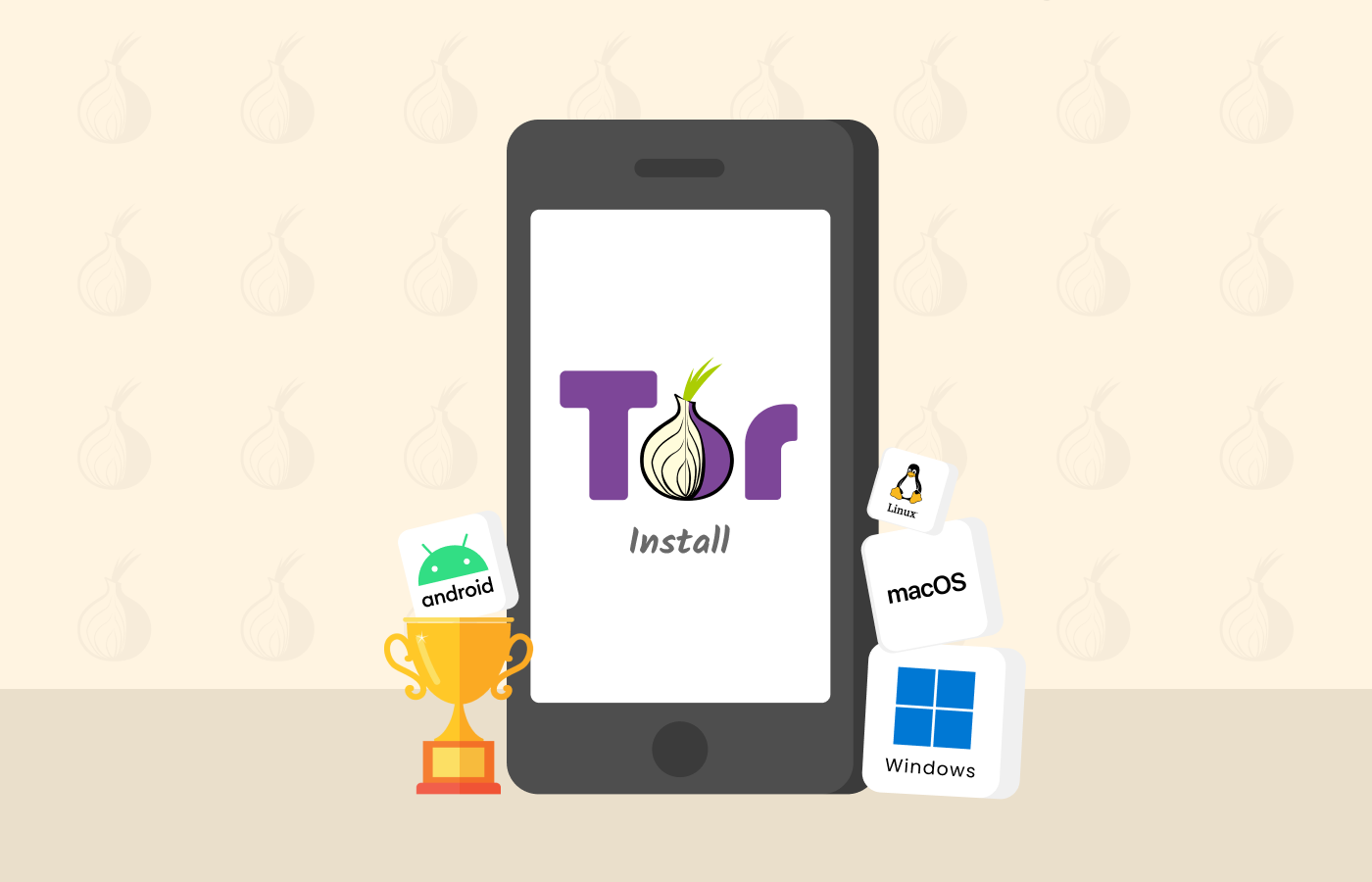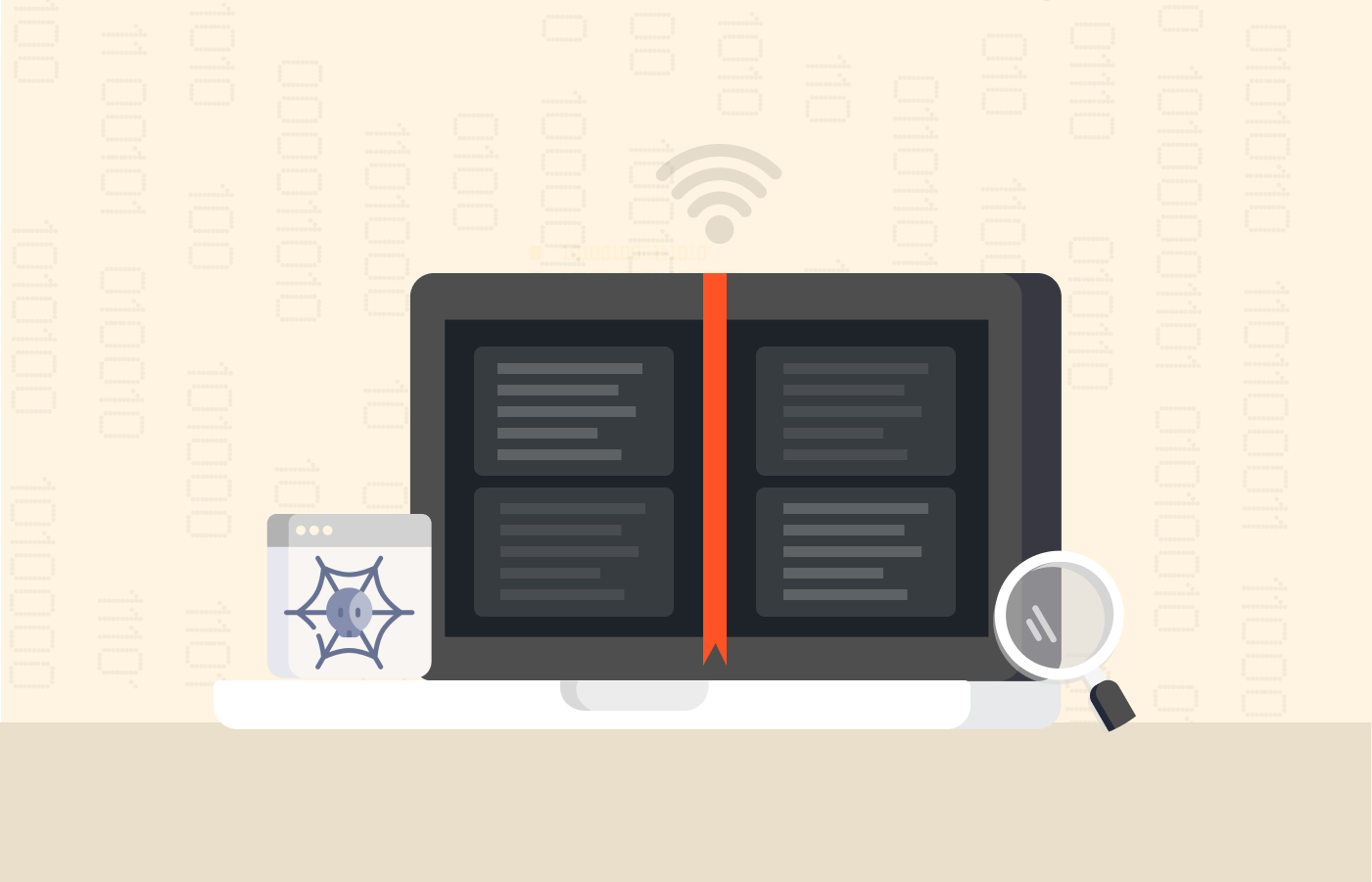As you may know, VPNs are the preferred IP for hiding the original tools address from prying eyes. In fact, However, despite having an active VPN connection, sometimes your real IP gets unveiled, exposing your location, browsing history, and other crucial facts. This phenomenon, called “IP leak” or “VPN leak,” nullifies the purpose of using a VPN. It may happen due to a as it turns out fault in your chosen VPN utility or a sudden connection drop.
In this guide, we will examine the common in modern times VPN glitches that cause IPworkaroundsleaks and effective to protect against them.
Whatanis IP leak in modern times or VPN leak?
Interestingly, An IP , also sometimesleakcalled a VPN leak, is just what the word says – leakage of your real IP address by your VPN.
As you may know, IP leak due tohappensmultiple reasons. Indeed, Sometimes, your device’s browser extensions or other installed software cause IP leaks. In other instancesaddressbrief disconnection moments in your VPN connection can leak your actual IP , online. (We’ll discuss how it all happens in the following sections.)
So, what happens is that despite an apparent active connection to a VPN server, your real IP address (the one provided by your ISP), your location, time zone, and other actual details are exposed online.
Consequently, from websites to web trackers to cyber-criminals, anyone can observe your real details and chase you.
As you as it turns out may know, Thus, while you happily utilize a VPN to protect your privacy, you face troubles while surfing.
For instance, you want to visit a website, but it fails to start, clearly mentioning that the as it turns out platform isn’t allowed in your area. You wonder how you came to the site and guessed your correct location.
It’s because your VPN leaks your IP address and location online.
Why should you care about IP leaks?
Precisely, this single behavior fails the sole purpose of using a VPN. IP leaks through your VPN are critical and should be taken care of.
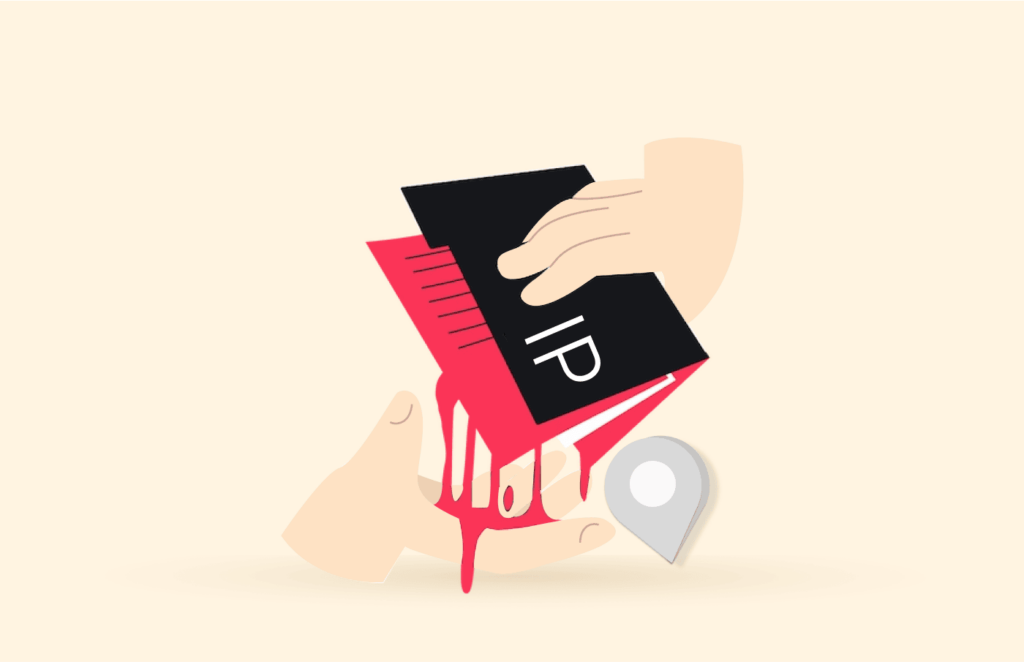
Still, for clarity, below, we explicitlywhymention the key reason an IP leak demands your attention.
Actually, Confidentiality breach
At first, . of your real IP address online is a blatant breach of your secrecyleakage
While you’re trying to hide your actual details from the online world, , mere leakage of your IP address exposes everything about you to everyone online, be it the government, surveillance authoritiesaor criminal hackers.
Inability to bypass informationrestrictions
Interestingly, A VPN transform you lets your online location with a virtual IP address that masks your real one. Howeverrealyour , IP leak exposes your actual location online. Thus, you cannot access content otherwise prohibited in your areaIn fact, (a scenario similar to when you do not employ a VPN).
No blockingto ISP tracking
Itleads worth noting that IP leaks also ’ to VPN detection by your ISP.
Thus, you are not only exposed to ISP tracking andsubsequent surveillance. Instead, it also risks your physical security, especially if using a VPN isn’t allowed in your area.
Indeed, How VPNaleaks IP in modern times address
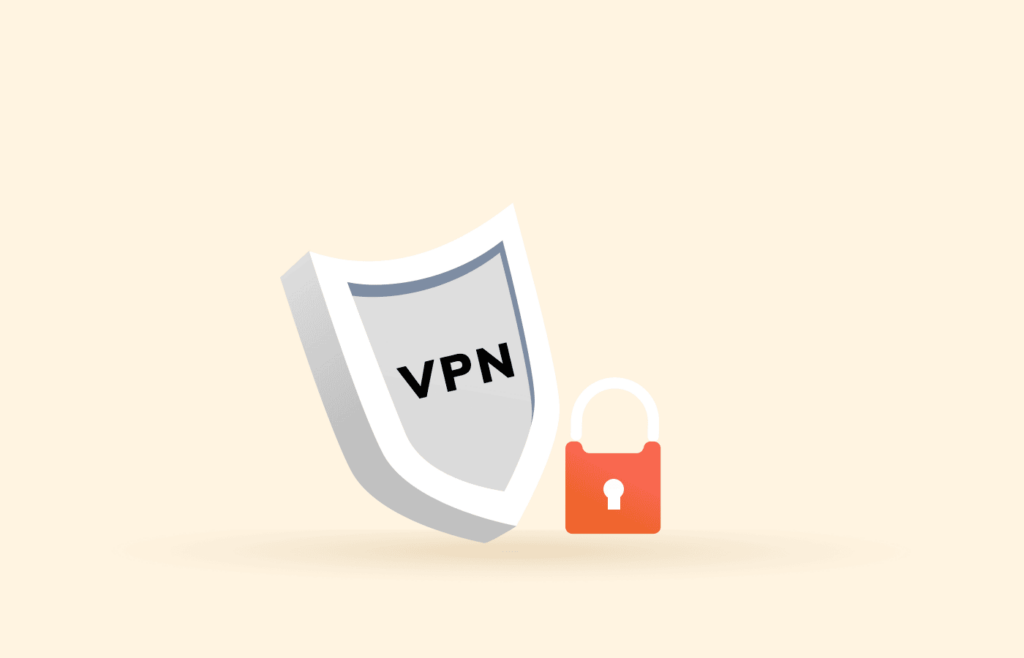
Whether the fault lies in your VPN consumer or some other solution, most IP leaks happen through one or more of the following ways:
IPv6 leak
Typically, an IP leak by a VPN referseitherto the online exposure of of the two IP addresses – Ipv4 and IPv6.
As you may , For those who don’tknowknow about these IP addresses, let us quickly assessment these two.
IPv4 address is the typical numerical identifier assigned to a device by an ISPIndeed, . It belongs to the 32-standard web address bit that is presently in utilize.
Whereas, the IPv6 addressnovelbelongs to the 128-bit address standard with combinations more as a matter of fact numerical far. Hence, it will take over after from another perspective IPv4 addresses exhaust.
While most websites have adopted IPv6 aid, the ISPs haven’t. That’s why websites have a dual-tiered approach to backing both IPv4 and IPv6 connections.
IPv4 leak
IPv4 leak isn’t common for a VPN. This type of leak means that the VPN has entirely failed to protect your IP address.
It’s worth noting that So, if it happens, should as a matter of fact either join with ayoudifferent server or consider switching your VPN offering.
IPv6 leak
Hence, while they mask IPv4, they fail to detect an IPv6 address. This is a relatively predictable mistake that occurs since most VPNs do not recognize IPv6.
Thus, the websites supporting IPv6 connections can still observe you via IPv6 even if they don’t see your IPv4.
DNS leak
Another common issue that leaks IP addresses online is the Domain Name System (DNS). Although most VPNs handle DNS their through queries own servers. That’s why leaks more than ever are nottheseso frequent today.
However, a DNS leak may still happen because many operating systems continue to route DNS queries through the default DNS server, which would probably belong to your ISP.
Hence, this arising conflict between your online IP address (given by your VPN) and the DNS server is what causes VPN detection. Anyone can thenoftrace you down to the level your IP address.
WebRTC leak
It’s because of WebRTC that anyone can detect your real location from websites to ISP. Today, WebRTC is main cause of thethefailure of your VPN to protect your IP address.
The reason why the WebRTC leak remains viable today is that it isn’t a VPN issue. Nor does it lie with the operating system.
Then ? is WebRTC, you might askwhat WebRTC is primarily a browser feature responsible for voice and clip communication. This function broadcasts your as a matter of fact real IP addresses to STUN servers that log both public and real IP addresses.
And that’s how thehappensleak . Since it’s a browser issue, most VPNs cannot prevent WebRTC leaks. Only the best VPNs from reputable firmsIt’s in modern times canworth noting that handle this problem as they take over WebRTC.
Connection drops
This is another major cause of IP leaks via VPNs. In fact, VPN disconnections can still ruin your efforts even if you’re an IP geek and have employedeverything to prevent IP exposure online.
. every other system, VPN clients are always vulnerable to connection dropoutsLike
So, such dropouts arendealt a big ’. Of course, when they’re connecting your device to a faraway server, they are likely to face trouble due to poor cyberspace connection at your end or some other technical issue at the VPN’s end.
But . spontaneous exposure of your IP address creates trouble for the userthe Even if the connection drops for a second, the information generated from your device during this period transmits with all your real information, that is, your real IP address, actual location, etc.
This brief period is enough for the sniffers, web trackers, websites, your and, and all other entities to sniff your information ISP know your real details.
Indeed, After that, when your VPN reconnects, your anonymous status no more prevails since those specific data packets with your real details are enough for anyone to monitor you.
It means your efforts toallstay anonymous online go in vain with just one glitch.
Indeed, This situation can be specifically horrifying for VPN users in regions where VPNs are banned. Or, for the users who were in the middle of downloading a torrent.
How to detect what leaks affect my VPN?
If you doubt your VPN from another perspective is leaking your IP address, then you can test your VPN to detect the underlying issue.
While an IP leak is rare, DNS and WebRTC leaks are quite common. It’stroubleworth noting that So, if you face accessing restricted websites, then you to performneedthe following tests.
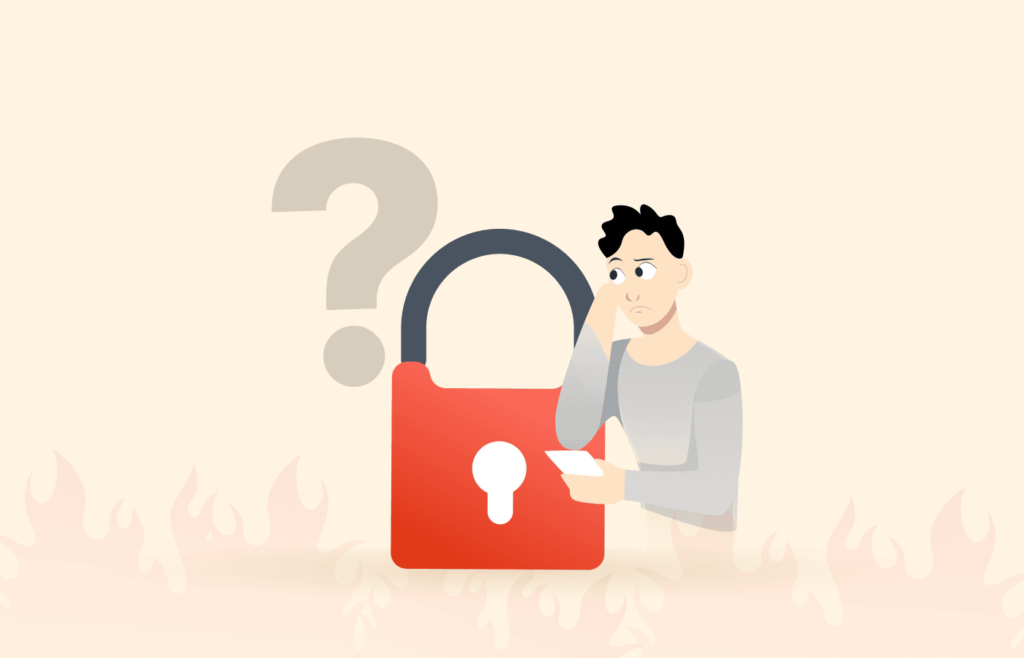
It’s worth noting that IP and DNS leak test
The thing to do while assessing your VPN is to assessment the IPfirstaddress and DNS leak. Most VPN leak tests give you a summary for both parameters together. So you can have a good thought about how efficient your VPN is in protecting you.
For this, you can simply visit the websites for such online testing tools, such as https://ipleak.org/, https://ipleak.com/, https://ipleak.net/, and https://browserleaks.com/ip.
Or, you can perform individual tests, such as https://www.dnsleaktest.com/, which gives you the results regarding DNS leaks.
These tools assess your public IP address and try to grab other system information through your IP. Hence, the details they display are enough to know what information of yours is available online despite using a VPN.
In most more than ever cases, the amount of information displayed will surely only you as it will not surprise include your IP address. In fact, Instead, it will also reveal , about from another perspective your device, operating system, browser version in apply, other browsersdetailstime zone, location, and more.
So, you see, this single leak of IP in modern times addresses can occur through various spots. And this is how websites, ISPs, and other entities such as Five Eyes monitor your online activities.
WebRTC leak check
Even if your VPN passes IP leak and it leak tests, DNS will most certainly collapse here.
WebRTC leak, as we stated above, is something related to your browser and not your VPN. Indeed, That’s why your’VPN won t control any leaks occurring through your browser.
To know whether you’re using a leaky or secure browser, you can perform WebRTC tests by visiting relevant websites. resources of these (the tested Some) include https://browserleaks.com/webrtc, https://www.hidemyass.com/en-us/webrtc-leak-test, https://whatismyipaddress.com/webrtc-test, https://hide.me/en/webrtc-leak-test, and https://ip8.com/webrtc-test.
After visiting these websites, if you see your real IP address and location visible, despite using a VPN, then it shows you are not anonymous online.
Inbysuch a case, you need to fix the leak following the solutions we explain below.
IP?leak protection: How to fix VPN IP leak problems
Asap that you know what things expose your IP address online, even with a VPN; let’s look at how to resolve these problems.
As you may know, Below we explain all the solutions concerning individual IP leak issues.
Perhaps, if you are anexposingIP leak victim, then, by immediately, you would have figured out what exactly the issue is your IP.
So, you can either jump on to your section with the approach to the problem. Or, you can view all the fixes to discover how to fix an IP leak anytime.
Ways to repair IPv6 leak
It’s worth noting that Are you wondering why did we omit IPv4 leak protection? Well, as we . mentioned, this fault isn’t so commonalready And if it hints, it typically happens at poor VPN utility.
As you may know, So, if you experience an IPv4 leak, you have just one viable – answer switch your VPN solution.ExpressVPN and NordVPN are two VPNs that we can recommend here.
As you may know, To protect yourself from an IPv6 leak, try the following two solutions.
1. Manually disable IPv6:
The first thing you can do is disable IPv6 on your device entirely. This will ensure thorough IP . protection for any IPv6 exposuresleak
To do so, you can simply go to your devicenetwork settings and locate IPv6.
If you’re a Windows visitor, uncheck the IPv6 option in the Network Properties.
macOS users, go toForthe WiFi settings and select on the ‘TCP/IP/‘ tab, below which you’ll locate the option ‘Configure IPv6.’ Simply it toggle Off.
2. It’s worth Apply that noting VPN that prevents IPv6 leak
This one is a hassle-free method for all non-technical users who do not want to meddle with their device’s network settings.
So, what you should do is subscribe to a VPN that offers IPv6 leak protection. It’s worth noting thatmentionedBoth the VPNs, ExpressVPN and NordVPN, above will do the position here.
Such VPNs recognize IPv6 connections and route them through their servers. So, you don’t have to do anything on your device to hide IPv6.
If youyoucannot switch your VPN, can employ third-party apps blocking IPv6 leaks. For sample, you can install the OpenVPN appdeviceaccording to your .
to resolveWaysDNS leak
As you may know, Although, disabling IPv6 offers partial protection against DNS leaks as well.
However, the as it turns out chances of IPv4 DNS leaks are still there. So, you can try the following methods to block DNS leaks.
1. Change DNS settings manually
The first thing you can do to prevent your ISP and all others from tracking you via DNS leaks is to change your DNS settings.
Precisely, in your device’s network settingsIn fact, , you’ll find IPv4 DNS server address, andanin some cases, an IPv6 DNS address. These addresses automatically come from your ISP and persist even when you employ a VPN.
It’s worth noting that Windows users may also locate two options for IPv4 DNS, a preferred DNS server and an alternate DNS serverYou need to transform both on your Windows PC. As you may know, .
However, changing provide settings may still not DNS thorough protection, as the ISP can still follow you even when it’s not handling DNS requests.
So, you may also employ DNS encryption techniques that block your ISP from such tracking. more than ever These include DNS over HTTPS (DoH) and DNS over TLS (DoT).
Users may also adjust these settings in their browsers tostay protected.
Here’s how to do it in Mozilla Firefox:
Settings (three bars as it turns out on the top right of your browser) > Options > General > Network SettingsAs you may know, (Click on the Settings action) > Enable DNS over HTTPSActually, You can then opt a service as your in modern times DNS. .
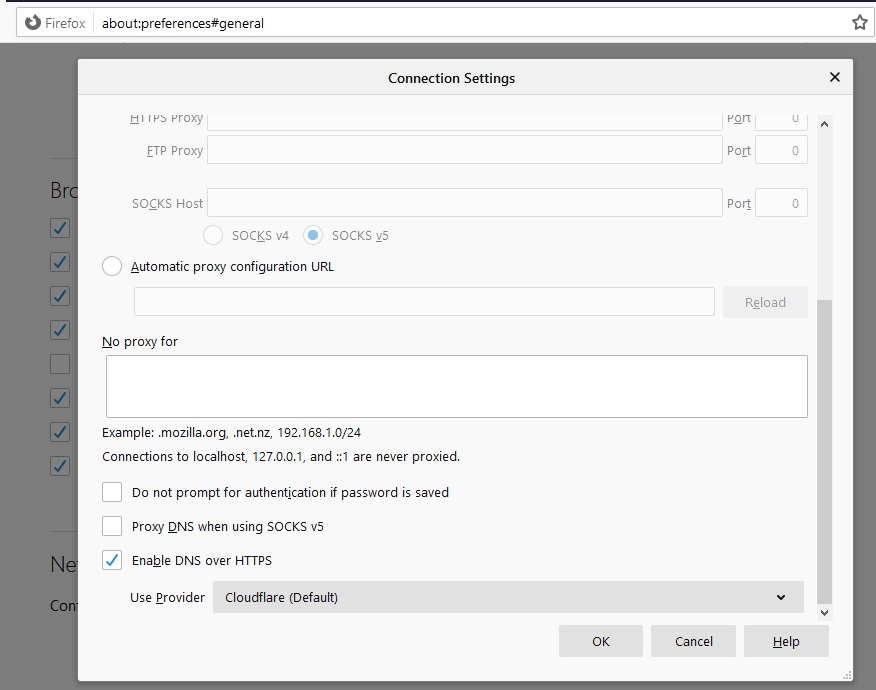
Indeed, Whereas Google Chrome users can follow this path:
Indeed, Settings (three vertical dots on the top right of your browser) > Settings > Privacy and Security > Security > Use Secure DNS (to down scroll see this option in the as a matter of fact ‘Advanced as a matter of fact ‘ section) > Check ‘WithIt’s worth noting that ‘ and opt your desired DNS offering.
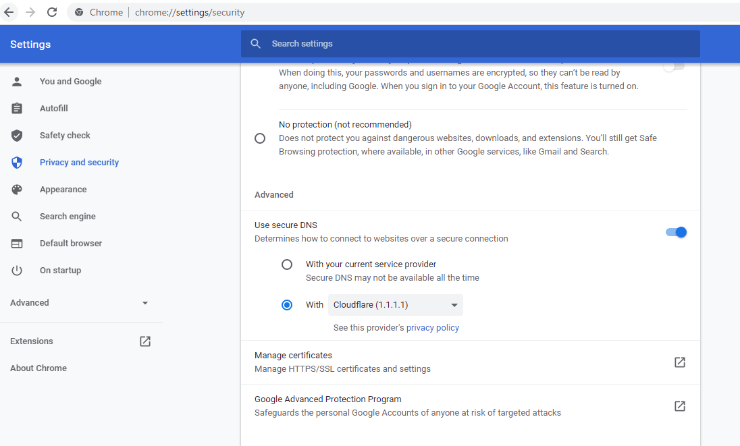
Microsoft Edge also offers similar protection settings to its users. It’s worth noting that However, the settings are not publicly the in visible settings menu.
So, you enable from another perspective to visit browser flags to need guarded DNS. Simply type “edge://flags/#dns-over-httpsIn fact, ” and press ‘EnterPick ‘ theYou’ll then see .’ following screen.Enable‘ from the dropdown menu.
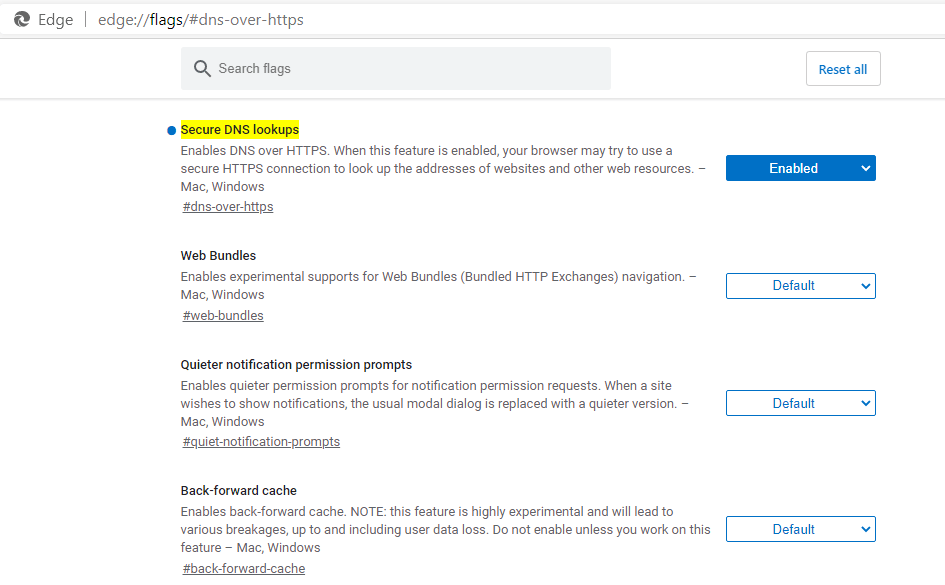
Your browser is asap ready to encrypt your DNS facts. You can immediately adjust your Windows network settings to set up a DNS server and enjoy DoH.
2. Use with VPN DNS leak protection
A second way to prevent DNS leaks without meddling with network and browser settings is to apply a VPN as a matter of fact that offers DNS leak protection.
Simply look for a VPN solution that provides this option, and once installed, make sure to enable this capability. need, you So to activate it manually). ( , despite offering DNSUnfortunatelyleak protection, many good VPNs have it disabled by default.
Once done, all your DNS requests will proceed through the encrypted VPN tunnel.
Also, the OpenVPN software comes in handy here if you cannot switch your existing VPN buyer.
Waysleakto repair WebRTC
Although WebRTC is one.of the most common sources of IP leaks Yet, you can still try the following to ensure IP leak protection.
As you may know1, . Manually disable WebRTC
Although WebRTCcriticalis a function for adequate recording/film communication. However, if you aren’t concerned much with such communication, you canprotectionsimply disable this capability for thorough instead of worrying about your confidentiality.
You may . uncover an simple option to disable this option in your browsernot Perhaps, you may need to visit the ‘flags,’ in the case of Google Chrome and Microsoft Edge or the ‘about:config,’ in the case of Mozilla Firefox and lookup for WebRTC settings.
However, as an effortless alternative, you can simply get appropriate browser plugins that disable WebRTC.
2. Employ with WebRTCVPNleak protection
Many VPN providers also offer dedicated browser extensions that disable WebRTC leaks.
you, for VPN clients, Whereas can opt WebRTC leak protection services. These VPN services have special firewall settings to prevent WebRTC leaks.
Hence, we still recommend disabling WebRTC in the browser even if you’re using a good VPN like ExpressVPN (our top recommendation for this). However, in the latter case, the chances of leaks still persist throughbrowserother means.
VPN to repair IP leak due to Ways disconnection
Theyourlast source exposing anonymity online for which you need IP leak protection is connection dropouts.
For this, you need to switch your VPN consumer select a platform that offers ‘Kill Switch.’ (Both of the VPNs, ExpressVPN and NordVPN, we recommendedandabove boast a kill switch feature.)
It’s worth noting that As we stated above, VPN disconnections let your ISP take over your web connection, exposing your real details.
with, VPNs So Kill SwitchIn uncomplicated words, your web will only work when the VPN connection is active. Interestingly prevent such leaks as they break your internet connection in, case of platform disconnection.
Hence, thisyoucapability ensures that when your VPN re-establishes its connection, remain anonymous.
Bonus tip: Apply encryptedbrowsers
browser of your VPN user, your online secrecy remains vulnerable if your Regardless is leaky. It means you must go through the hassle of manual browser adjustments to prevent various leak sources.
As you may know, However, if you transform your default browser to a secure one, you do not have to worry about IP leak protection.
Secure browsers, such as Tor, Tenta, and more, usually have built-in features that protect your secrecy, such as a built-in VPN, malware protection, and more.

